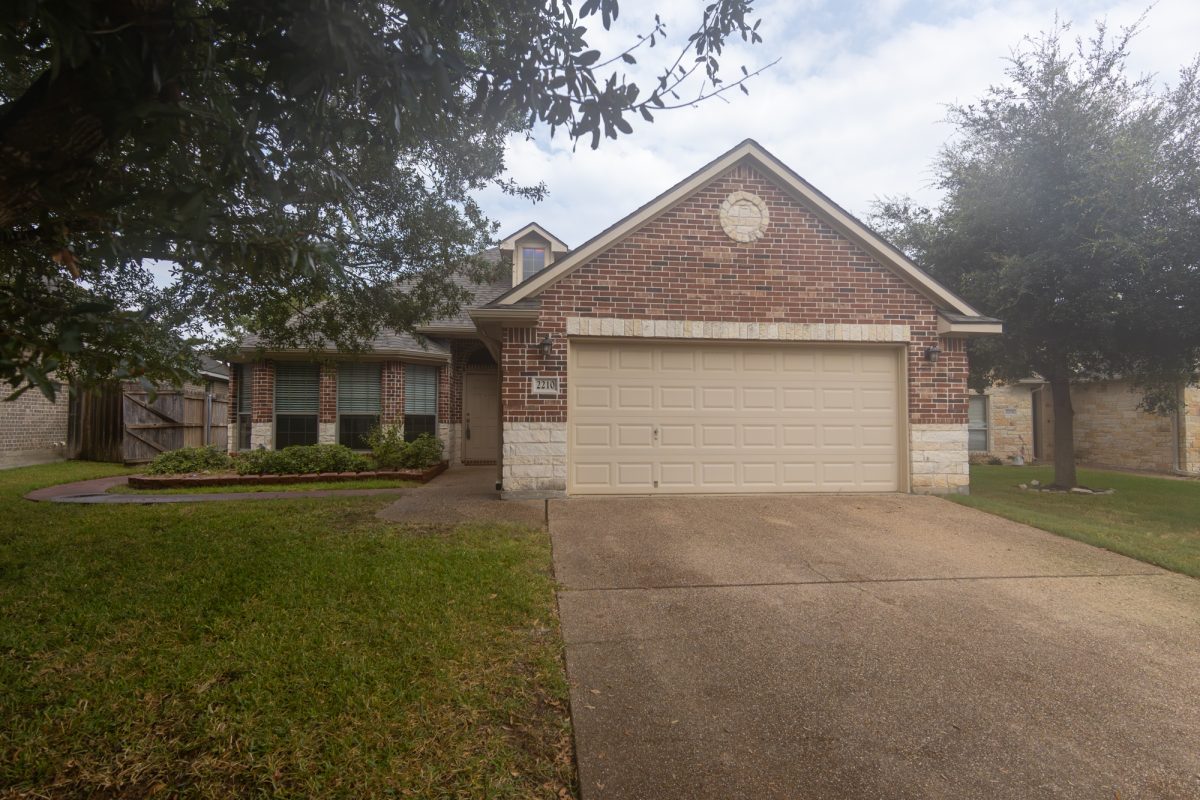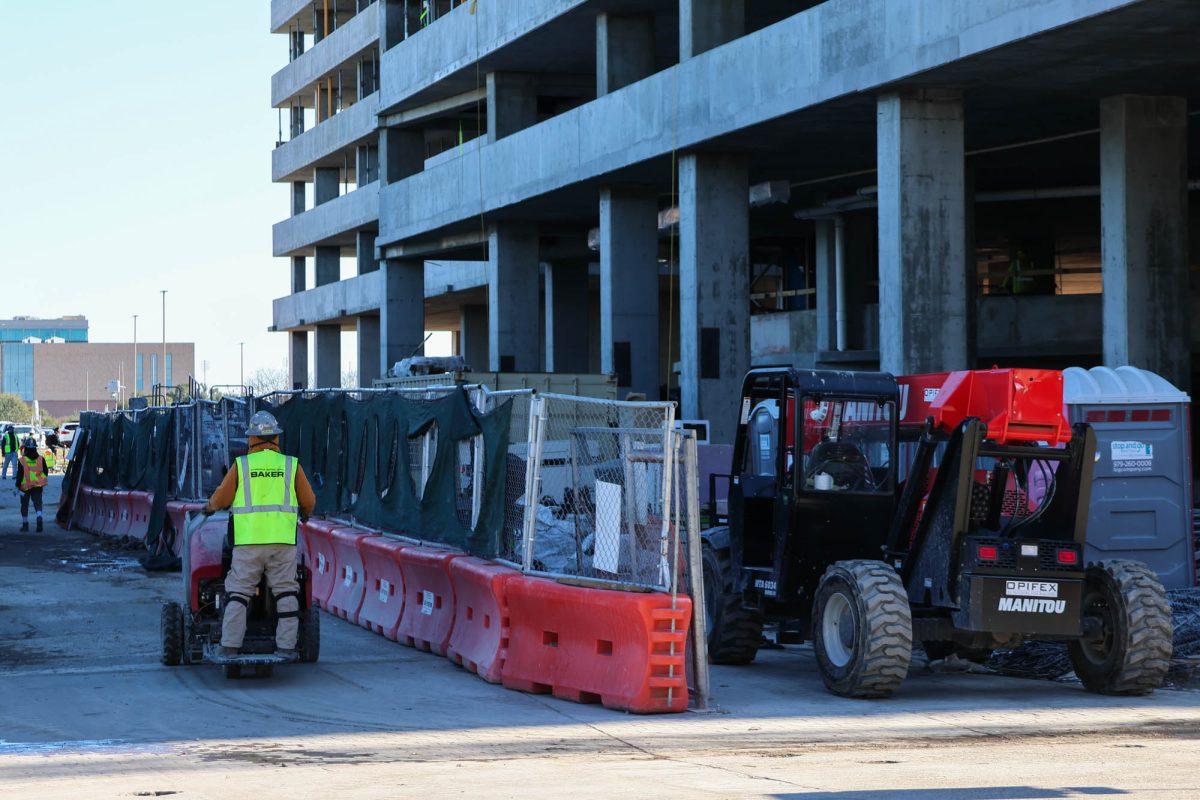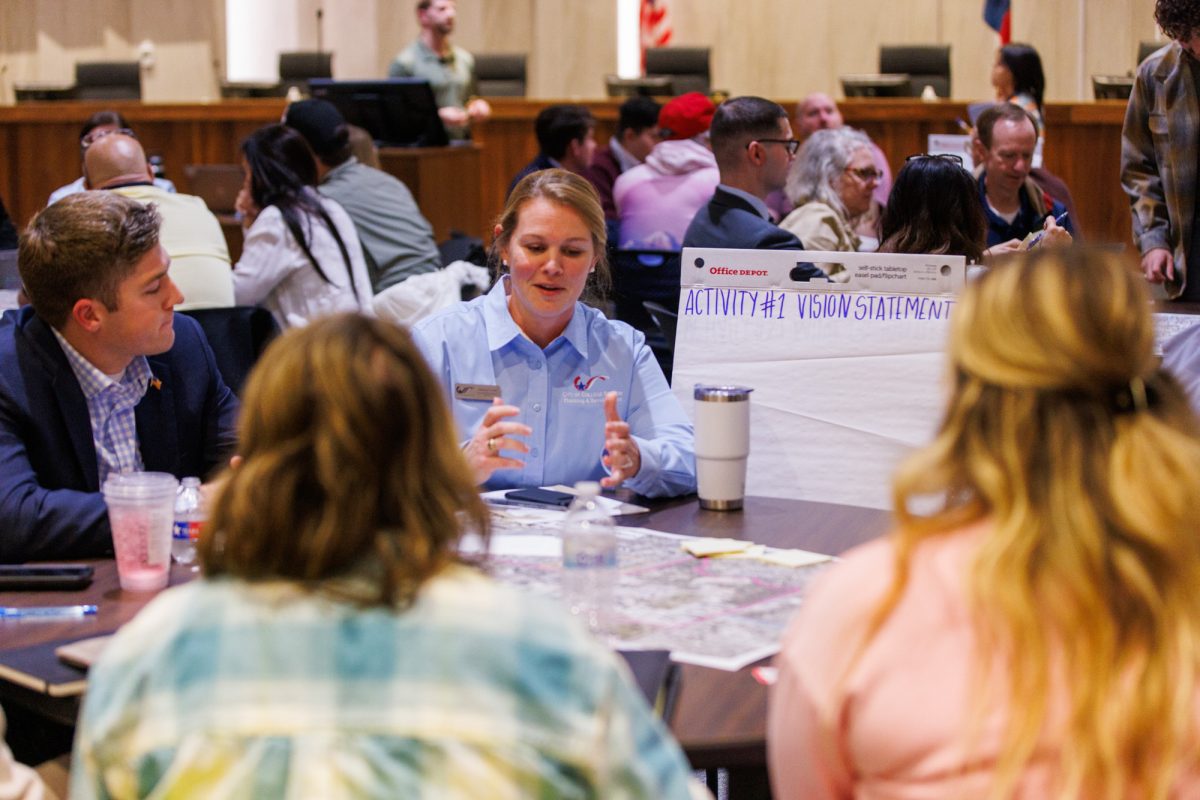A multi-million-dollar lawsuit has been filed against a Texas A&M engineering professor after the former tenants of his rental property alleged that mold exposure within the house caused them substantial illnesses and debt from medical treatments.
Walter Orlate, a multidisciplinary engineering professor, is being sued by two families who lived in his rental home in the College Station neighborhood Castlegate. Orlate did not respond to requests for an interview.
The plaintiffs are Andrew and Leasa DeCuir, their four children and Billy and Heather Strawn. Both families allegedly experienced expensive medical treatments, struggled to relocate their families and continued to have lasting effects from their experiences being exposed to toxic mold. The DeCuirs’ son allegedly began having seizure episodes at school, and the plaintiffs received frequent medical problems due to their unknown source of illness — mold.
Both families allege that exposure to “mold, fungi and other microbe spores … cause[d] physical harm … insomnia, brain fog, muscle pain, joint inflammation, night sweats, rashes, headaches, depression, anxiety, panic-attacks [sic] and ulcers,” according to the 22-page lawsuit filed in Brazos County in April.
“We felt worse being at home,” Leasa said. “We were having a lot of congestion, fatigue, rashes, like fungal-type rashes … ear infections, eye infections.”
According to Leasa, she noticed something strange under the home’s sink while doing dishes one day. Upon looking, she found an outlet with water damage and what appeared to be mold. She took pictures of the mold and sent it to the homeowner.
“At this point, I was like, ‘Oh my, this is a huge fire hazard,’” Leasa said. “I was not going to panic. Even if we had mold, surely it was not toxic. There is just no way that we are living this nightmare.”
The DeCuir family asked their landlord to do a professional inspection for mold on several occasions afterward. Orlate allegedly insisted on paying for help from a handyman.
“That was the first time we had seen a shift in Walter’s behavior towards us,” Leasa said. “Prior to that … it just seemed like he was a nice guy. Right off the bat, he was like, ‘That does not look like mold. I don’t think there is actually mold, but I agree this is not good. Let’s get that taken care of.’”
After discussing what to do about the issue, the family made a compromise with the landlord and decided to call a remediator to inspect the observed mold. They were worried about ripping it out or messing with it, Leasa said, so they waited. But Orlate continued to allegedly recommend alternate methods, such as removing and replacing the wet boards.
Going nowhere with the professor, Leasa moved to hire a remediation specialist and get a second opinion on the hazard. They removed the cabinet entirely as well as boards, finding swaths of mold that were now exposed to the DeCuir family.
“And so our kids had inhaled and encountered so much mold that their bodies were desperately trying to detox it,” Leasa said. “In the middle of the night, they woke up with swollen faces and just feeling bad. All of them felt like they had the flu.”
The family’s health conditions allegedly continued to escalate, with one of their children developing absence seizures and Leasa experiencing facial paralysis. They removed all impacted belongings, from clothes to stuffed animals, in an attempt to dispose of the alleged mold spores.
“[Orlate] was like, ‘I’m not paying,’” Leasa said. “It doesn’t matter to me whether it’s toxic or not. It doesn’t matter because it’s gone. We’ve taken it all out. We just need a new board. That was his story … ‘We took out all the moisture. We fixed the sink.We put a new board. Like, there’s not more we need to do here.’”
The specialist sent a quote to remove the hazard the proper way.
“This is a licensed professional explaining how this has to be done,” Leasa said. “And he also said to [Orlate]: if you choose to have your handyman do this, it is illegal. It is illegal in the state of Texas for a handyman to remediate mold. He told Walter that point blank.”
Orlate allegedly told the family he had not received the quote to remediate the house. Leasa took matters into her own hands to hire a pathologist to test the mold to see if it was toxic to the family.
“We can’t live with this,” Leasa said. “We’re getting sicker and sicker and sicker by the day, and we can’t find another place to live.”
The mold returned as toxic, so Leasa contacted the professor.
“I’m like, ‘Walter, it is a neurotoxic mold. Will you please now consider professionally remediating, please, for our sake? For the sake of any other family that comes behind us, this has to be taken seriously. And this, all I want is this just to be taken care of.’”
With back-and-forth disagreements between the landlord, the DeCuir family and the remediation company, Orlate asked the family to move out of the house. Soon after, the house was leased to the Strawns, the second family in the lawsuit.
“I’m like, please just safely fix this,” Leasa said. “I have a kid having seizures. I’m petrified and I have nowhere to go.”
Both families are suing for damages related to the loss of their belongings, the cost of their medical treatments and emotional damages. According to the lawsuit, the total amount is more than one million dollars but under 20 million.
“Our story didn’t have to be this,” Leasa said. “This could’ve been taken care of … It should have been disclosed.”























Leah Courington • Oct 3, 2024 at 11:44 am
I am so so sorry to hear about this!! I had toxic mold in my dorm at TAMU. I experienced several of these same issues and symptoms. This is such a huge issue and needs to be addressed. My prayers go out to these families. Shame on these university employees for gas lighting and ignoring these issues.
Heather Strawn • Oct 16, 2024 at 8:13 pm
Thank you for your prayers and thoughts! I agree that toxic mold deserves more attention. Hoping you are healing well.
Heather Strawn • Sep 12, 2024 at 9:08 pm
Such an unnecessary tragedy that both of our families have been so negatively impacted by a situation that could have easily been covered by insurance. Shameful and diabolical.